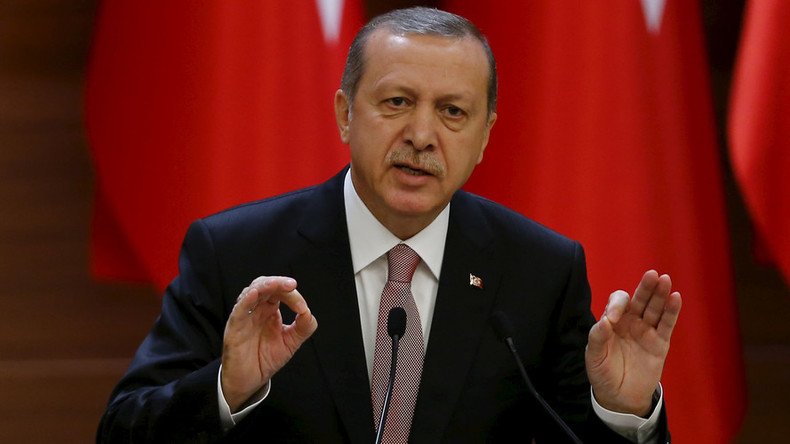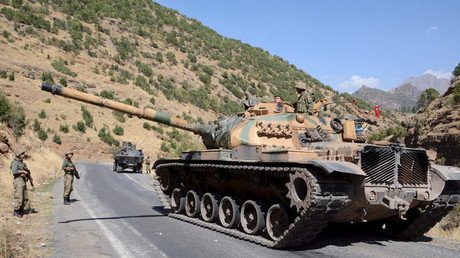‘ISIS might become Frankenstein for Turkey’

A monster in the form of ISIS, which Ankara allegedly hoped to nourish, might wind up consuming Turkey, as it happened to the US on 9/11 after supported the Mujahedeen against the Kabul regime, says author and historian Gerald Horne.
RT: More and more reports are appearing about Turkey's alleged links to Islamic State. What do you make of these claims?
Gerald Horne: I’ll warn Ankara about the story of the Frankenstein’s monster - that is to say that it would be quite easy and simple for this monster that Turkey has hoped to create and to nourish in the form of so-called Islamic State might wind up consuming Turkey itself not to mention President [Recep Tayyip] Erdogan personally. I might remind Turkey about what happened to the US in the 1980’s in Afghanistan, when the US shared a trench with the so-called freedom fighters - the Mujahedeen -against the Kabul based regime, and then on September 11, 2001 that strategy backfired when their former allies attacked New York and Washington. Turkey is now treading a similar path.
RT: In your opinion what could be done to secure the Turkish border with Syria and Iraq?
GH: I would remind Ankara as well that just recently the Arab League castigated Turkey because of its apparent violation of Iraqi sovereignty. It is also clear that the ultimate solution to the liquidation of the so-called Islamic State involves further aid and assistance to the Kurdish population. That is to say the Kurdish population in Syria, the Kurdish population in Iraq and I might also say that Kurdish population in Turkey as well. The problem there is that Turkey, that is to say President Erdogan himself sees the squashing of the Kurds in south eastern Turkey is being one of the top priorities of his regime. This inevitably brings them into conflict not only with Damascus, but ultimately it would bring him into conflict with Washington as well, which now has sent signals that it is willing to ally with the Kurds.
RT: The Arab League has condemned Turkey's intervention in Iraq. Can they do anything else to put pressure on Turkey to withdraw?
GH: The Arab League has not been an exactly ferocious organization in terms of defending its prerogatives. Also the Arab League tends to be dominated by Sunni-based regimes, such as those in Saudi Arabia in particular. But the fact that such an organization has now condemned Turkey should be a warning sign to Ankara that it needs to revise its one-headed policy.
Speaking about pressure the Arab League could put on Ankara to withdraw its military forces from Iraq, Professor of Political Sciences at Cairo University Maged Botros, said the Gulf States could use economic tools.
“The only pressure they can do is some sort of economic sanctions. They can pressure it because Turkey is involved with the Gulf States, with the long-term contracts over the supply of Turkish products, as well as oil transactions. So the only leverage the Gulf has, which is the main partner with Turkey is the leverage of economic tools, not diplomatic.”
The statements, views and opinions expressed in this column are solely those of the author and do not necessarily represent those of RT.













